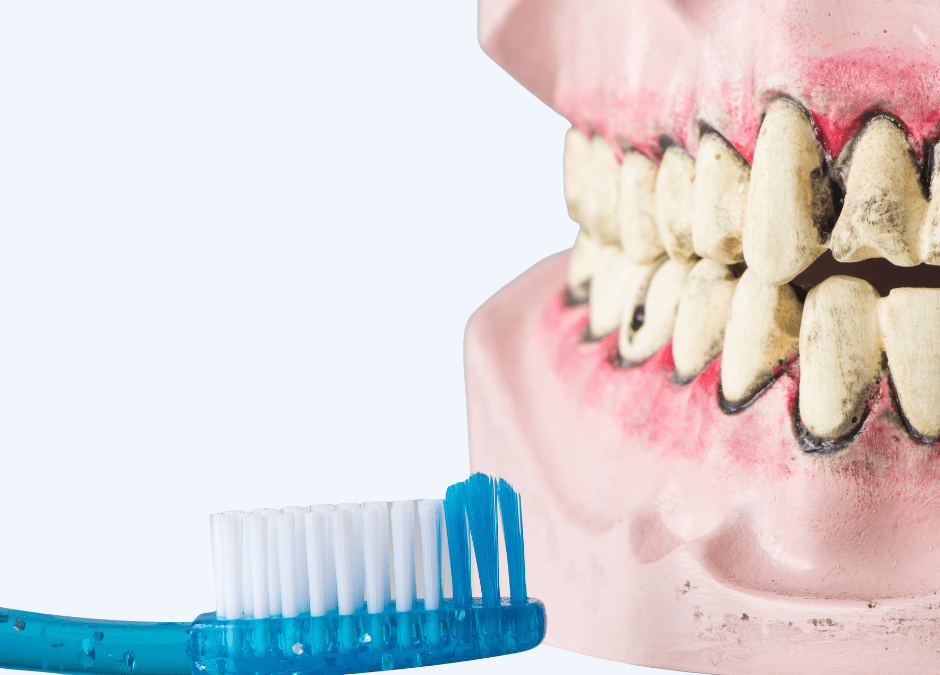Dental health is directly linked to your overall health, and you must take care of your teeth and gums. A healthy smile will not only help you look your best, but it will also make you feel better overall. You must brush and floss daily, and you must visit your dentist regularly for professional cleanings and examinations.
Poor oral hygiene can lead to many health issues, including the following:
Diabetes
Gum disease is an infection that can lead to tooth decay if left untreated. Gum disease makes diabetes harder to treat, which can cause a spike in blood sugar levels, and those with type 1 or 2 diabetes will find it especially challenging. If you have a lot of sugar or drool in your mouth, your blood glucose level may become unmanageable, and you’ll have more sugar saliva, which can cause your mouth to become more bacterially active.
Lung Issues
Poor oral health can cause respiratory issues, and a bad dental hygiene routine may allow naturally occurring germs to travel from your mouth to your lungs, increasing the risk of respiratory disease and other serious conditions like pneumonia.
Infertility
Women who follow a poor oral hygiene routine may struggle to get pregnant because poor dental health can decrease their chances of pregnancy, and some women may experience infertility. Women must be informed about their dental health because it can cause complications, and it may take them longer to get pregnant than women with good oral hygiene. Additionally, if you do become pregnant, you will be more likely to develop pathological dental problems, which is highly concerning as this can harm both the mother and the baby.
Heart Conditions
Many dentists will discuss the link between poor dental health and cardiovascular disease; if you fail to care for your teeth and gums, you may experience issues with your heart. Inflammation of the gums will increase the possibility of infectious disease in the bloodstream, which can cause damage to the heart valves. Bacteria in the mouth that passes through the body through bleeding gums can cause blood clots and heart problems.
Dementia
Did you know that your brain is directly linked to your teeth? Gingivitis is linked to a decline in mental health, and it is possible to experience memory loss due to poor dental health. Poor dental hygiene can affect your brain health, and if the infection travels into your brain, it may eventually lead to memory loss.
Kidney Illness
It is more likely for a person with poor dental health to develop chronic disease than it is for individuals who have healthy teeth and gums. Inflammation and infections will have a long-term effect on the arteries and may cause them to stiffen and construct. Poor oral hygiene may affect different areas of your body, and dental infections can spread throughout your body. The bladder and kidneys are commonly impacted by bacteria in the mouth.
Osteoporosis
Many people are unaware that poor oral health can contribute to this disease. This bone condition occurs whenever a person’s bones become weak and brittle due to lost tissue caused by a shortage of calcium or gum disease. Periodontitis can destroy damaged tissue and cause teeth to break or even fall out if left untreated.
Cancer
Poor dental hygiene can lead to two types of mouth cancer; mouth and stomach. Those who smoke are at a higher risk, and this is a habit you must kick because tobacco will damage your teeth and can eventually lead to mouth cancer. Excessive consumption of alcohol can also cause serious problems.
The Importance of Your Dental Health
You must protect your dental health, and there are many steps you can take to protect your smile. Brushing and flossing twice daily is a must to remove plaque buildup on your teeth. Flossing is equally important to brushing because it removes food particles stuck between your teeth that your toothbrush bristles cannot remove. Brush your teeth for two minutes each time to clean thoroughly, and make sure you apply the right technique.
Visiting your dentist twice a year is also very important; you must schedule these appointments regularly. A professional cleaning will remove plaque and tartar, and dentists use tools and equipment you do not have at home. Even if you follow a strict dental hygiene routine, it is still a must that you visit your dentist every six months. In addition to cleaning, a dentist will also examine your teeth and gums to ensure there are no signs that may be concerning. If they detect any symptoms, they will provide you with immediate care, and early detection will prevent pain and costly treatments.
Failure to visit your dentist can cause minor issues to become more severe, and you may require extensive dental surgery, which can be both painful and expensive. Visiting your dentist regularly will give them the opportunity to catch problems while they are still minor, and treatment can be applied easily.
Your oral and overall health are connected in many ways, and you must protect both to remain healthy. If uncontrolled, bacteria in your mouth can not only multiply but also enter your bloodstream, affecting the other parts of your body. Gum disease is often linked to heart disease, respiratory issues, diabetes, and more, and you can prevent these conditions when you take good care of your oral health. Not only will you help control the risks associated with heart disease, diabetes, and pregnancy, but good oral health will also improve your self-esteem and increase your confidence levels.
Conclusion
Do you want to take better care of your dental health? Kingsville Family Dental is ready to schedule your next appointment! We will provide professional tips and advice regarding your oral health and the steps you can take to improve your smile.
If you are looking for a dentist in the Kingsville area, contact us today!


Recent Comments